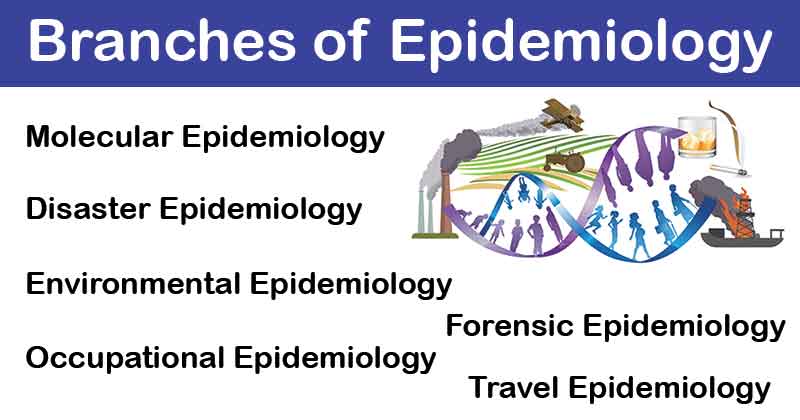- Epidemiology is the study of how the disease is distributed in populations and the factors that influence or determine this distribution.
- It is defined as “the study of the distribution and determinants of health-related states or events in specified populations and the application of this study to control of health problems.”
- Information from epidemiologic studies frequently is used to plan new health services and to evaluate the overall health status of a given population.
- The field of epidemiology is highly interdisciplinary. In addition to its close ties to statistics, particularly biostatistics, it relies heavily on the concepts, knowledge, and theories of such disciplines as biology, pathology, and physiology in the health and biomedical sciences as well as on the disciplines of anthropology, psychology, and sociology in the behavioral and social sciences.

Interesting Science Videos
Molecular Epidemiology
- This branch of epidemiology is concerned with the application of molecular biology to study various epidemiologic problems.
- Various molecular biology techniques such as DNA cloning, nucleic acid analysis, polymerase chain reaction, etc. are applied in this study.
- It is most beneficial in the study of diseases caused by the viral agents.
Disaster Epidemiology
- It is a branch of epidemiology that studies the factors that cause disasters.
- It is also concerned with the study to find mechanisms in order to reduce the negative health effects of that disaster.
- Disasters maybe of two types- natural and man-made. A Natural disaster is caused by the nature- earthquakes, hurricanes, floods, etc. Man-made disaster is caused by the loopholes, chemical and oil spills, etc.
- Its main objective is to generate information so that the disaster relief workers could be aware about the situation. It uses techniques such as identification of potential diseases, establishment of surveillance systems, etc.
Forensic Epidemiology
- It contains the mixture of principles and practices common to both forensic medicine and epidemiology.
- It is involved in formulation of evidence-based probabilistic conclusions about the type and quantity of causal association between an antecedent harmful exposure and an injury or disease outcome in both populations and individuals.
- The conclusions resulting from analysis can support legal decision-making regarding guilt or innocence in criminal actions, and provide an evidentiary support for findings of causal association in civil actions.
Environmental Epidemiology
- Environmental epidemiology is a branch of epidemiology concerned with determining how environmental exposures impact human health.
- This field seeks to understand how various external risk factors may predispose to or protect against disease, illness, injury, developmental abnormalities, or death.
Travel Epidemiology
- It is a specific branch of epidemiology that is concerned with the health risks associated with travelling.
- One of the main purposes of travel epidemiology is to provide necessary health-related information so that the travellers can plan a safe journey.
- For example, in high altitude regions health issues like snow blindness, heat exhaustion, dehydration, frostbite, etc. is possible.
Occupational Epidemiology
- Occupational epidemiology is a sub-discipline of epidemiology that focuses on investigations of workers and the workplace.
- Occupational epidemiologic studies examine health outcomes among workers, and their potential association with conditions in the workplace including noise, chemicals, heat, or radiation, or work organization such as schedules.
- Occupational epidemiological research can inform risk assessments; development of standards and other risk management activities; and estimates of the co-benefits and co-harms of policies designed to reduce risk factors or conditions that can affect human health.
References
- Park, K. (n.d.). Park’s textbook of preventive and social medicine.
- Gordis, L. (2014). Epidemiology (Fifth edition.). Philadelphia, PA: Elsevier Saunders.
- http://ocw.jhsph.edu/courses/FundEpiII/PDFs/Lecture18.pdf
- https://medium.com/@craigstewart110/major-branches-of-epidemiology-6f574e02b8fb
- https://www.britannica.com/science/epidemiology
- https://www.sciencedirect.com/topics/medicine-and-dentistry/descriptive-epidemiology
- https://www.cdc.gov/csels/dsepd/ss1978/lesson1/section7.html
- https://www.ncbi.nlm.nih.gov/books/NBK13832/
- https://cursos.campusvirtualsp.org/mod/tab/view.php?id=34146&forceview=1

Very very good. I am so impressed I want to make an impression. And that is now.